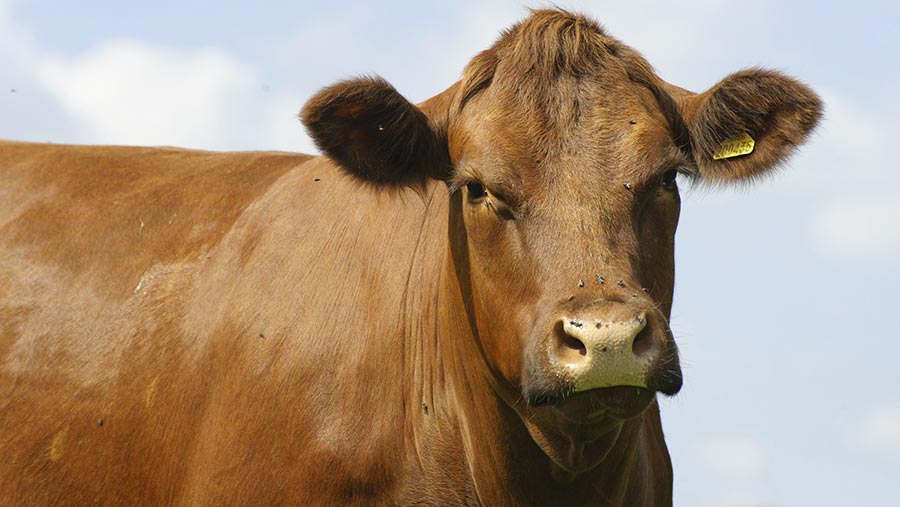Opinion: What farmers need from Brexit
 © FLPA/REX/Shutterstock
© FLPA/REX/Shutterstock While breakfasting at my local agricultural show, I find myself sat next to a well-respected land agent (if that is not a contradiction in terms).
As we munched our way through a traditional full English, I ventured the question of how he thought English farmers might fare after Brexit.
“I regularly see about 400 sets of farm accounts in the course of the work I do,” he said. “Take the BPS money out of them and it doesn’t bear thinking about.”
With new Defra secretary Michael Gove already promising to match BPS payments after Brexit until at least 2022, perhaps we can afford to relax for a while about the loss of that £3.5bn/year handout.
 Stephen Carr farms 800ha on the South Downs near Eastbourne with his wife Fizz
Stephen Carr farms 800ha on the South Downs near Eastbourne with his wife FizzBut EU subsidy, of course, is only half the picture in terms of the effect of Brexit on our industry.
After Brexit we will be removed from the CAP, one of the most protectionist agricultural trade policies in the world, and thrown into a much more uncertain regime dictated by politicians in Westminster, without any of the parties there having much sympathy for agricultural protectionism.
See also: Opinion – Gove must listen to farmers
We have just been through a general election, but the lack of any detail provided by any of the party manifestos about the shape of a post-Brexit food trade policy has been daunting for any farmer trying to plan ahead.
There are the obvious unanswered questions such as what will happen to the 40% of the UK lamb crop that is currently exported to the EU once it is subject to the £2,689/t import levy. But there are even more alarming doubts about the future of the existing array of EU import tariffs.
These trade barriers prevent the import of grain, beef, lamb and dairy products into the UK from producer countries with such weak currencies and/or low labour costs that they are capable of putting every UK farmer out of business if ever given free access to our markets.
Trade negotiations
We are told by Conservative politicians that, as UK trade delegation teams pursue bi-lateral trade deals around the globe, Defra personnel will feature prominently as part of those negotiations.
If they think that is supposed to give me comfort as a farmer, they can think again.
The culture among the mandarins within Defra, during both Labour governments and Conservative-led administrations, has been relentlessly hostile to the CAP.
The department has commissioned academic studies to investigate how farmers in the EU28 countries would fare if they had their direct payments removed (it found UK farmers would be worst affected, so it quickly buried the report’s findings).
It has also lobbied hard in Brussels both for reductions in the CAP budget and for the removal of EU trade tariffs on a wide range of agricultural produce (beef being a recent notorious example).
Some suggest the Tories’ loss of a parliamentary majority is likely to mean a softer Brexit than if Mrs May had achieved the landslide result she was hoping for.
But the DUP are hard Brexiteers (with the slight caveat of retaining a soft border between Northern Ireland and the Republic) and the appointment of Mr Gove as Defra secretary, the ultimate Tory eurosceptic, hardly suggests Mrs May has in mind a softening of her line towards leaving the EU’s internal market and customs union.
The average age of UK farmers is now 60, so perhaps there is logic in Mr Gove guaranteeing our direct payments until 2022.
In five years’ time, the average age of UK farmers will be 65, so at that point he can simultaneously pension us all off and leave himself free to pursue his free-trade-cheap-food policies.
